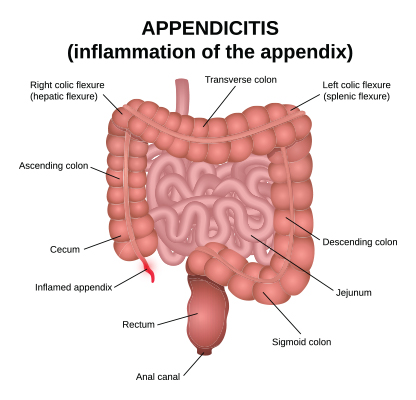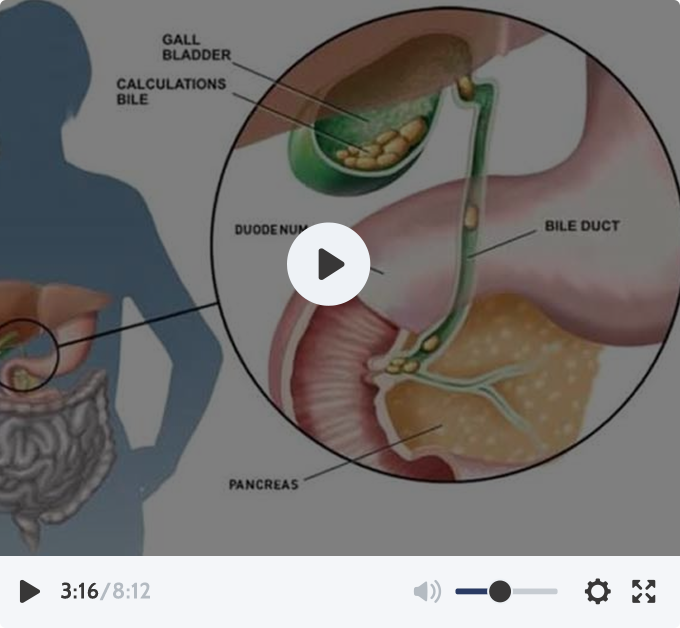Appendicitis is a sudden inflammation of the appendix. Although the appendix does not seem to serve any purpose, it can become diseased and, if untreated, can burst, causing infection and could be even fatal.


Appendicitis occurs when the interior of the appendix becomes filled with something that causes it to swell, such as mucus, bacteria, foreign body, hard stool, or parasites. The appendix then becomes irritated and inflamed. Appendix may perforate allowing stool, mucus, and other substances to leak through and get inside the abdomen causing localized abscess or generalised infection of abdomen (peritonitis).
The diagnosis of appendicitis begins with a through history and physical examination. Patients often have an elevated temperature, and there usually will be moderate to severe tenderness in the right lower abdomen when the doctor pushes there. If inflammation has spread to the peritoneum, there is frequently rebound tenderness. Rebound tenderness is pain that is worse when the doctor quickly releases his or her hand after gently pressing on the abdomen over the area of tenderness.
The following tests are usually used to make the diagnosis:
An appendectomy is the surgical removal of the appendix. The procedure is performed to treat appendicitis, an inflammation of the appendix caused by infection.
The laparoscopic being a minimally invasive approach has various advantages over the open technique.
Surgical removal of the appendix causes no observable health problems as it has no known and definite function in the human body.
During first few year of the life appendix functions as part of the immune system, but after that it no longer has any known function.
Appendicitis is a sudden inflammation of the appendix.
There is no known way to prevent appendicitis. However, if you are able to recognize appendicitis symptoms, you can prevent serious appendicitis complications from occurring.
The most serious complication of appendicitis is an infection of the lining of your abdominal cavity (peritonitis). This may occur if your appendix ruptures (perforates) and the contents of your intestines and infectious organisms invade the peritoneal cavity. Peritonitis is a medical emergency.
The amount of pain is different for each person. The pain can be controlled with the help of pain control medications.
Generally, you can be discharged on the next day of the surgery.
In general, plan to take about one week off from work.
Mostly the procedure is covered under most medical insurance plans. Please confirm in your policy documents.